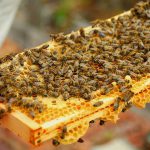
Most of us have been in a situation where we experience temporary hunger. It might be that we forgot to pack our lunch, or missed a meal and had to wait for the next one to be served. But mostly we did not give it a second thought.
Imagine a scenario of regularly not having enough to eat, or living under the anxiety of wondering where the next meal was going to come from. In a world which grows enough food, around 800 million people right now are hungry, while you are reading this. The former FAO Director General Jacques Diouf rightly called it “the world’s largest tragedy and scandal”.
There is a good chance that your views on food security (or food sovereignty) reflect your conditioning and investment in society. If you are part of the agro-food value chain, you will most likely dismiss any responsibility for world hunger because you, to be fair, are doing your part to put food on the shelves! And if you earn your money in a different sector (and are not dependent on this one, at least not financially), you might be more critical of it.
And if you are not earning money?
South Africa is food secure on a national level, thanks mostly to our farmers. Why is it then that around 14.1 million people (26% of the population) are “predisposed to hunger and malnutrition” (DALRRD, 2016)?
Hard work and profit encourage our entrepreneur farmers to produce food and to take the risks that accompany this. And they should be supported. Emerson praised them, saying farmers cause food to be where there was not food before.
Increasingly, questions are being asked about how that food finds its way to the consumer. In the light of eating or not eating, it is right that attention falls on agriculture and on the agro-food system, and that there is debate around the process which brings food to our plates.



Share this article







